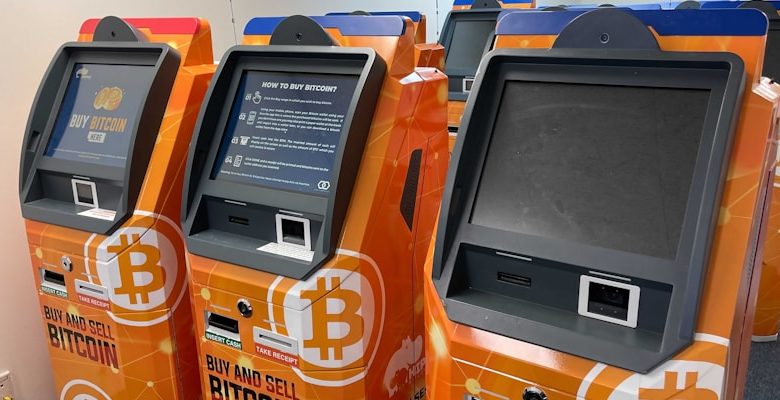How Blockchain Is Enabling Secure and Transparent Voting Systems

- How Blockchain Technology is Revolutionizing Voting Systems
- Ensuring Security and Transparency in Elections with Blockchain
- The Role of Blockchain in Creating Trustworthy Voting Systems
- Exploring the Benefits of Blockchain for Secure Voting Processes
- Challenges and Opportunities of Implementing Blockchain in Voting Systems
- Case Studies of Successful Blockchain-Based Voting Platforms
How Blockchain Technology is Revolutionizing Voting Systems
Blockchain technology is transforming voting systems by introducing a new level of security and transparency. The decentralized nature of blockchain ensures that all transactions within the voting process are recorded securely and cannot be altered, making it virtually impossible to manipulate the results.
One of the key benefits of using blockchain for voting is the elimination of fraud and tampering. Each vote is encrypted and stored on a distributed ledger, making it easy to verify the authenticity of each vote without compromising voter privacy. This increased level of security gives voters confidence that their votes will be counted accurately.
Another advantage of blockchain-based voting systems is the transparency it provides. Since all transactions are recorded on a public ledger, anyone can audit the results to ensure that no votes have been changed or removed. This transparency helps to build trust in the voting process and ensures that the results are fair and accurate.
Furthermore, blockchain technology allows for real-time tracking of votes, providing instant results without the need for manual counting or verification. This not only speeds up the voting process but also reduces the chances of errors or discrepancies in the results.
Ensuring Security and Transparency in Elections with Blockchain
Using blockchain technology in voting systems can greatly enhance the security and transparency of elections. By leveraging the decentralized and immutable nature of blockchain, we can ensure that the integrity of the voting process is maintained.
One key benefit of blockchain in voting is the prevention of tampering or manipulation of votes. Each vote is securely recorded on the blockchain, making it nearly impossible for any unauthorized changes to be made. This provides voters with confidence that their votes will be accurately counted and not altered in any way.
Furthermore, blockchain technology allows for real-time tracking of votes, enabling voters to verify that their vote has been successfully recorded. This transparency helps to build trust in the electoral process and ensures that the final results are accurate and reliable.
Additionally, blockchain can also help to prevent issues such as voter fraud and double voting. By creating a tamper-proof record of each vote, blockchain eliminates the possibility of fraudulent activities that can compromise the integrity of an election.
In conclusion, the use of blockchain in voting systems offers a secure and transparent solution to the challenges faced in traditional electoral processes. By harnessing the power of blockchain technology, we can create a more reliable and trustworthy voting system that upholds the principles of democracy.
The Role of Blockchain in Creating Trustworthy Voting Systems
Blockchain technology plays a crucial role in the development of trustworthy voting systems. By leveraging blockchain’s decentralized and immutable nature, voting processes can be made more secure and transparent.
One of the key advantages of using blockchain in voting systems is the ability to create a tamper-proof record of votes. Each vote is encrypted and stored in a block, which is then linked to the previous block in a chain. This creates a transparent and unchangeable ledger of all votes cast, ensuring that the integrity of the voting process is maintained.
Additionally, blockchain technology eliminates the need for a central authority to oversee the voting process. Instead, the network of nodes collaborates to validate and record each vote, making it virtually impossible for any single entity to manipulate the results. This decentralized approach helps to build trust among voters, as they can be confident that their votes will be accurately counted.
Furthermore, blockchain can also enable secure and anonymous voting. By using cryptographic techniques, voters can cast their votes without revealing their identities, while still ensuring that each vote is counted correctly. This helps to protect voter privacy and prevent coercion or intimidation in the voting process.
In conclusion, blockchain technology has the potential to revolutionize the way we conduct elections by creating secure, transparent, and trustworthy voting systems. By leveraging the unique features of blockchain, we can build a more democratic and inclusive voting process that empowers citizens and strengthens the integrity of our democratic institutions.
Exploring the Benefits of Blockchain for Secure Voting Processes
One of the key benefits of utilizing blockchain technology for voting processes is the enhanced security it provides. By leveraging the decentralized and immutable nature of blockchain, the integrity of the voting system can be significantly improved. Each vote is securely recorded on the blockchain, making it nearly impossible for any unauthorized modifications to occur without detection.
Furthermore, blockchain technology enables a high level of transparency in the voting process. All transactions on the blockchain are visible to all participants, ensuring that the voting results are verifiable and tamper-proof. This transparency helps to build trust among voters and ensures the legitimacy of the election outcome.
Another advantage of using blockchain for secure voting processes is the elimination of intermediaries. With traditional voting systems, there is often a need for third parties to oversee the process, which can introduce vulnerabilities and increase the risk of manipulation. By removing intermediaries and relying on the decentralized nature of blockchain, the voting process becomes more efficient and resistant to fraud.
In addition, blockchain technology allows for increased accessibility and convenience in voting. With blockchain-based voting systems, voters can cast their votes from anywhere in the world using a computer or mobile device. This not only enhances voter turnout but also reduces the costs and logistical challenges associated with traditional voting methods.
Overall, the benefits of blockchain for secure and transparent voting processes are clear. By leveraging the unique features of blockchain technology, such as security, transparency, and decentralization, we can revolutionize the way elections are conducted, ensuring fair and reliable results for all participants.
Challenges and Opportunities of Implementing Blockchain in Voting Systems
Implementing blockchain in voting systems presents both challenges and opportunities. One of the main challenges is the need for widespread adoption and acceptance of this new technology. Many people are still unfamiliar with blockchain and may be hesitant to trust it with something as important as voting. Additionally, there are concerns about the scalability of blockchain networks when it comes to handling the large volume of transactions that occur during an election.
On the other hand, there are numerous opportunities that come with using blockchain in voting systems. One of the most significant advantages is the increased security and transparency that blockchain offers. By using a decentralized and immutable ledger, it becomes much more difficult for any malicious actors to tamper with the voting data. This can help to ensure the integrity of the election results and increase trust in the democratic process.
Furthermore, blockchain technology can also streamline the voting process and make it more efficient. Through the use of smart contracts, voting systems can be automated, reducing the need for manual oversight and decreasing the likelihood of human error. This can help to make elections more cost-effective and accessible to a larger number of people.
Overall, while there are certainly challenges to overcome in implementing blockchain in voting systems, the opportunities for increased security, transparency, and efficiency make it a promising avenue to explore for the future of elections. By addressing these challenges and taking advantage of the opportunities that blockchain provides, we can work towards creating a more secure and trustworthy voting system for all.
Case Studies of Successful Blockchain-Based Voting Platforms
Several case studies have demonstrated the successful implementation of blockchain-based voting platforms, showcasing the potential for secure and transparent voting systems. These platforms have leveraged blockchain technology to address issues such as fraud, manipulation, and lack of transparency in traditional voting processes. Here are some examples of successful blockchain-based voting platforms:
- Voatz: Voatz is a mobile voting platform that uses blockchain technology to enable secure and transparent voting. By leveraging blockchain’s decentralized ledger, Voatz ensures that each vote is recorded accurately and cannot be altered. This platform has been used in various elections, including primaries and general elections, with positive feedback from users.
- Follow My Vote: Follow My Vote is another blockchain-based voting platform that focuses on transparency and security. By utilizing blockchain technology, Follow My Vote allows voters to verify that their votes have been recorded correctly and anonymously. This platform has been tested in mock elections and has received praise for its innovative approach to voting.
- Polys: Polys is a blockchain-based voting platform that offers secure and transparent voting solutions for organizations and businesses. Using blockchain technology, Polys ensures that each vote is encrypted and cannot be tampered with. This platform has been used in corporate elections and referendums, proving to be an effective tool for ensuring the integrity of the voting process.
Overall, these case studies highlight the transformative potential of blockchain technology in revolutionizing voting systems. By providing secure and transparent voting platforms, blockchain technology is paving the way for a more democratic and trustworthy electoral process.



